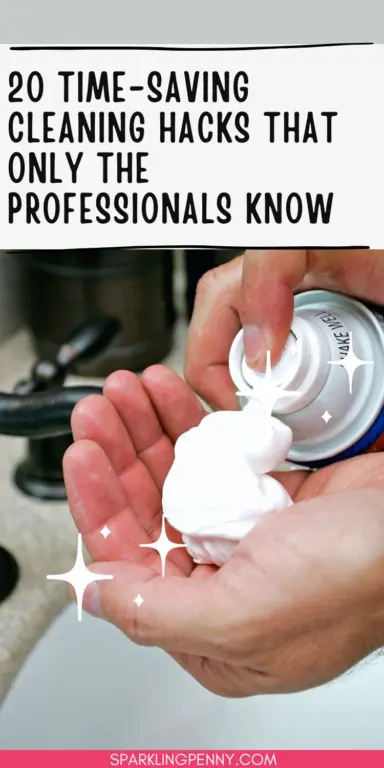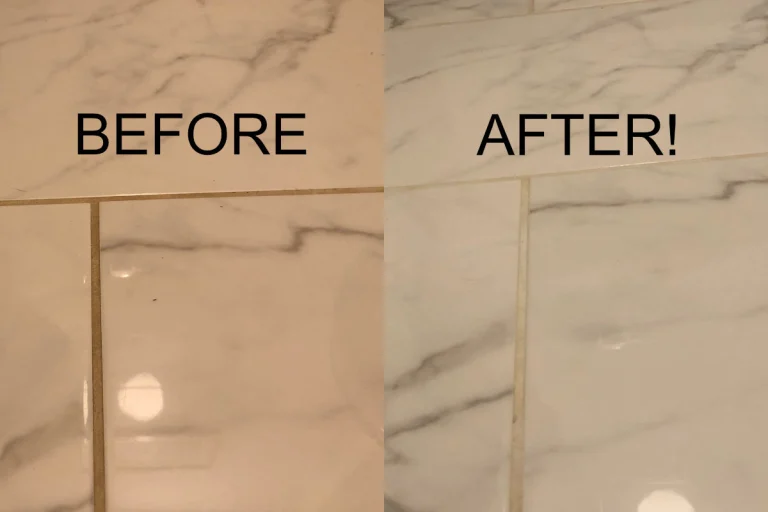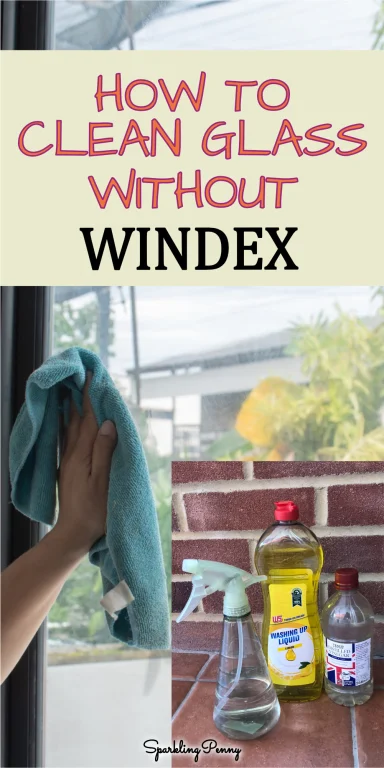Have you ever found yourself about to tackle a mountain of dirty dishes and, oops, you’re out of dish soap? You might glance over at the hand soap and think, “Could this work?”
Dish soap is the go-to for a reason: it’s tough on grease and food gunk. Hand soap, though, is more about being gentle on your skin, keeping it clean and soft, not so much about going toe-to-toe with last night’s lasagna.
So, what if you sub in hand soap for dish duty? It’s not the end of the world if it’s a one-off thing, but don’t expect it to knock out grease like your usual dish soap. Plus, some hand soaps can be clingy and leave behind a residue that might make your next meal taste a bit off.
Thinking of making the switch? Read this guide to help you decide:
No time? Here’s a quick summary:
Using hand soap for dishes is okay in a pinch, but it’s not a daily swap. Hand soap lacks the grease-busting power of dish soap and may leave behind residues. Save it for emergencies only.
Heads up: I sometimes use affiliate links. When you click these links and make a purchase, I may get a small commission. It won't cost you anything but it helps me to run this site.
The differences between dish soap and hand soap

When it comes to cleaning, the type of soap you use matters. Dish soap is designed to cut through grease on dishes, while hand soap is formulated to be gentle on your skin.
Let’s explore how they differ and what that means for your dishwashing routine:
Is hand soap actually safe for dishwashing?
Hand soap can be used for washing dishes, but it is unlikely to perform as effectively as dish soap.
While it’s safe to use in your kitchen and will clean your dishes, hand soap is not formulated to target tough grease and food particles because it typically has a lower concentration of grease-cutting chemicals.
The additives in hand soap might not rinse off dishes as cleanly as dish soap does. So it is always a good idea to rinse thoroughly when you use it to wash dishes.
Hand soap vs. dish soap: What’s in the bottle?
Both hand soap and dish soap come with their own special blend of ingredients, each doing its own thing for your skin and your dishes.
Here’s the scoop on what they’re made of:
-
Hand soap:
- Made to be easy on your hands
- Often contains moisturizers to keep skin soft
- Often has a nice scent thanks to fragrances
- Will likely contain parabens to keep it fresh
-
- Loaded with degreasers like SLS and SLES to tackle grease
- Contains chemicals to remove leftover food and germs
- Can have preservatives like dmdm hydantoin and sodium hydroxymethylglycinate to stop bacteria from growing
Does dish soap and hand soap have the same cleaning effect on dishes?
Hand soap and dish soap do not have the same cleaning effect on dishes. The difference largely comes down to the ingredients each contains to handle specific cleaning jobs:
- Hand Soap: Milder and may not remove all food particles and grease effectively.
- Dish Soap: Stronger, aimed at breaking down grease and ensuring a thorough rinse, it’s the better choice for spotless and clean dishes.
Picking the best hand soap for dishwashing

If you are looking for a hand soap that can double as a dish cleaner, you’ll want something that’s good at cutting through grease and zapping bacteria, but also kind to your hands.
But, which sort is better?
Liquid soap
- Quick and easy: Lathers up fast and gets you through dishwashing in a snap.
- Cleanliness: Less of a germ-party than bar soap, since it’s not sitting around in its own goo.
Bar soap
- Budget-friendly: Tends to last longer, so your wallet’s happier.
- Suds: You’ll need a bit more elbow grease to get those bubbles going.
- Bacteria: They can get a bit germy over time, but don’t stress too much – those soap-dwelling bugs aren’t likely to cause any harm, according to Vice.com.
Antibacterial hand wash
- Kills germs: Great at fighting bacteria, but hot water and regular soap usually do the trick for dishes.
- Safety first: Just make sure it doesn’t leave any icky residue that could end up on your fork.
Liquid soaps with glycerin
- Kind to hands: Glycerin’s there to keep your hands from drying out after all that washing.
- Grease fighter: Good news – it still means business when it comes to greasy dishes.
Can you use body wash for dishes?

Body wash is all about pampering your skin, not blasting through grease and leftovers. If you are thinking of using it for dishes, then you’ll probably need to put in a bit more elbow grease to get them sparkling.
Your favorite body wash might contain stuff like moisturizers or perfumes that aren’t really meant for dishes. They can stick around on your plates and, you might get a taste of them later. So don’t forget to rinse well.
Using body wash generally won’t cause any harm, but try to pick one without a bunch of added fragrances or extras if it’s going to double as dish soap.
Here are my tips for getting your dishes sparkling with body wash:
- Crank up the heat: Hot water can give body wash a bit of a boost.
- Use more: You’ll likely need to use extra to get the job done.
- Rinse well: Give your dishes an extra rinse to make sure all the soapiness is gone.
What to use when the dish soap is all gone

So, you’ve squeezed the last drop out of the dish soap bottle, and you have ruled out using hand soap and body wash, don’t worry because you probably have something else around the house to use instead.
Just hot water
Sometimes, hot water is all you need, especially for dishes that aren’t super dirty. It can even help with germs, but for the really stuck-on stuff, you might need a bit more scrubbing, or soaking.
Baking soda
Mix up some baking soda with water to make a paste that can take on tough stains. It’s a soft touch abrasive that’ll clean without leaving scratch marks.
Washing soda crystals
Washing soda crystals (a.k.a. sodium carbonate) are another secret weapon. Dissolve a generous amount in some hot water, and it will easily shift stains and grease.
Laundry detergent? Really?
If you’re really in a bind, a tiny bit of laundry detergent can do the trick. Use it as a last resort and rinse, rinse, rinse. Check out this guide on how to use it safely: Laundry detergent as dish soap?
Shampoo
Yep, mild shampoo can actually work on dishes, cutting through the grease. Just stay away from the heavily scented ones or those with lots of additives to avoid a soapy aftertaste and rinse well. Did you know you could use shampoo (in a pinch) for washing your clothes?
Dishwasher tablet hack
Got a dishwasher? Break out a dishwasher tablet, dissolve it in some hot water, and use that mix to scrub your dishes. Just be careful with how much you use and make sure you rinse well. Don’t forget gloves to protect your hands.
Dishwasher tablets have a lot of other uses, here’s one you might not know about – how to clean your shower door with a dishwasher tablet.
Frequently asked questions
What are some suitable alternatives when I run out of dish soap?
You can use baking soda, vinegar, or a combination of the two as an effective dishwashing solution. Both are safe for general cleaning and can cut through grease and remove odors.
Can laundry detergent be safely used for washing dishes?
It’s not recommended to use laundry detergent for washing dishes, as it can contain harsh chemicals and fragrances not intended for dishware. This can leave behind residue and may be unsafe for consumption.
What’s the difference between using dish soap and hand soap for cleaning dishes?
Dish soap is formulated to cut through grease and food residues on dishware, while hand soap is milder and designed to be gentle on skin. While hand soap can technically clean dishes, it may not be as effective at removing oily substances.
Is it safe to clean dishes with shampoo in a pinch?
Shampoo can be used for cleaning dishes, but it’s better suited for removing oil than food residues. Opt for a shampoo free of conditioners and heavy fragrances to avoid taste transfer.
Are there any bar soaps that are particularly good for dishwashing tasks?
Bar soaps that are free from added moisturizers and perfumes, such as traditional castile soap, can be effective for dishwashing. Ensure they are thoroughly rinsed to prevent any soap residues.












